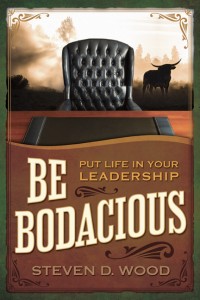Oops! I just realized that the video and audio tracks were separated slightly in the recording/uploading process. Now the video looks like a bad Japanese movie. If you can ignore that part, the rest of the video is worth the listen, though. :-)
(Subscribers may need to click through to see the video)
Video notes
I’m learning a lot in our local SHRM chapter mentoring program, and not to discount our speakers or leaders (both fantastic), but one of the greatest pieces for me is meeting other people with a thirst for knowledge and the willingness to reach for it. The other participants are top notch and I’m extremely blessed to be a part of the group.
What have we covered so far?
- Developing an elevator speech to communicate your job to the CEO
- Social Styles-how you interact and communicate with others
- Branding
- Controlling costs and impacting the bottom through benefit administration
- Public sector HR-much more interesting than it sounds!
One of the most interesting ideas I’ve pulled from the experience?
There’s big power in small groups.
Quotes from other participants
For me, I\’ve enjoyed getting to talk more in depth about HR topics, challenges, etc.  I\’ve also appreciated the “safe†environment provided to ask questions. I also judge NMU has fostered lifelong professional relationships. Christine Beldner
Being in HR some how entitles you to have an interesting work life. There are some situations that arise and you seriously feel that you are the only one who has ever had to deal with some crazy situation. Being in the NMU has helped me realize I am not alone. (As cliché as it may sound.) Through our meetings I have been able to note who has dealt with similar situations and have been able to rely on more experienced peers for advice.
HR may be a career where ‘interesting\’ stories are your day-to-day life and your friends or family might not be able to relate; but your HR friends and family can relate and probably top your most ‘interesting\’ story with one of their own! Karen Still
If you’re interested in getting into the NASHRM Mentor University group next year (if you’re local!), just stay tuned for more updates as the year progresses. If you’re not local, but you’d like to start a group for your own chapter, feel free to email me and we can chat! It’s an amazing tool for a young HR professional, and I can’t recommend it highly enough!
 Credibility. Some of us have it, and some of us don’t. Do you know how to establish credibility? What about how to maintain it for the long term? If you’ve lost it as a result of a dishonest action or some other similar factor, then that’s one thing, but it’s a whole other issue when you are starting from scratch. Today we’ll look at how to establish credibility when you have none to begin with.
Credibility. Some of us have it, and some of us don’t. Do you know how to establish credibility? What about how to maintain it for the long term? If you’ve lost it as a result of a dishonest action or some other similar factor, then that’s one thing, but it’s a whole other issue when you are starting from scratch. Today we’ll look at how to establish credibility when you have none to begin with.